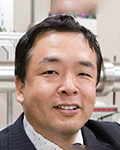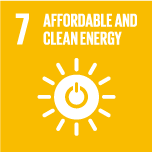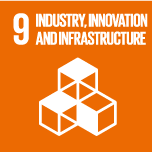| Principal Investigator (Affiliation) |
 - Prof. YONEZAWA Tetsu
Faculty of Engineering, Division of Materials Science and Engineering, Hokkaido University
|
| Co-investigator |
- Assistant Prof. NGUYEN Thanh Mai
- Hokkaido University, Faculty of Engineering
|
| Research Participant |
- Researcher WANG, Linsheng
- Hokkaido University, Faculty of Engineering
- Assistant Prof. TOKUNAGA Tomoharu
- Nagoya University Graduate School of Engineering
|
| International Coordinator |
- Prof. YONEZAWA Tetsu
- Hokkaido University, Faculty of Engineering, Division of Materials Science and Engineering
|
| Research Institutions in Japan |
Hokkaido University |
| Cooperating Organization in Japan |
Nagoya University |
| Partner Country |
The Kingdom of Thailand  |
| Research Institutions in Thailand |
|
| Cooperating organization in Thailand |
Chulalongkorn University |
| Support Organization |
Centrale Supelec |
| General Description of the Research Project |
Secondary batteries, such as lithium-ion batteries, are expected to significantly change the energy environment for the next generation. Zinc-air batteries are capable of storing five times more energy than lithium-ion batteries. Thailand is a zinc-producing country, and zinc-based batteries are attracting a lot of attention. As a stationary secondary battery e.g. zinc-air batteries show a very low cost per Wh. In this study, we aim to construct a catalyst system to improve the current density and to create a zinc-based battery for practical use. The current density for the target implementation in this study is about 60 mA cm-2. This work will provide a practical catalyst and demonstrate its practicality by using it to assemble a zinc-air based battery and zinc flow battery module in practice. In particular, the practical application of installed zinc-based secondary batteries could contribute to power leveling, make energy cleaner, and lead to technological innovation using domestic minerals. |
| Links |
Faculty of Engineering, Hokkaido University |







